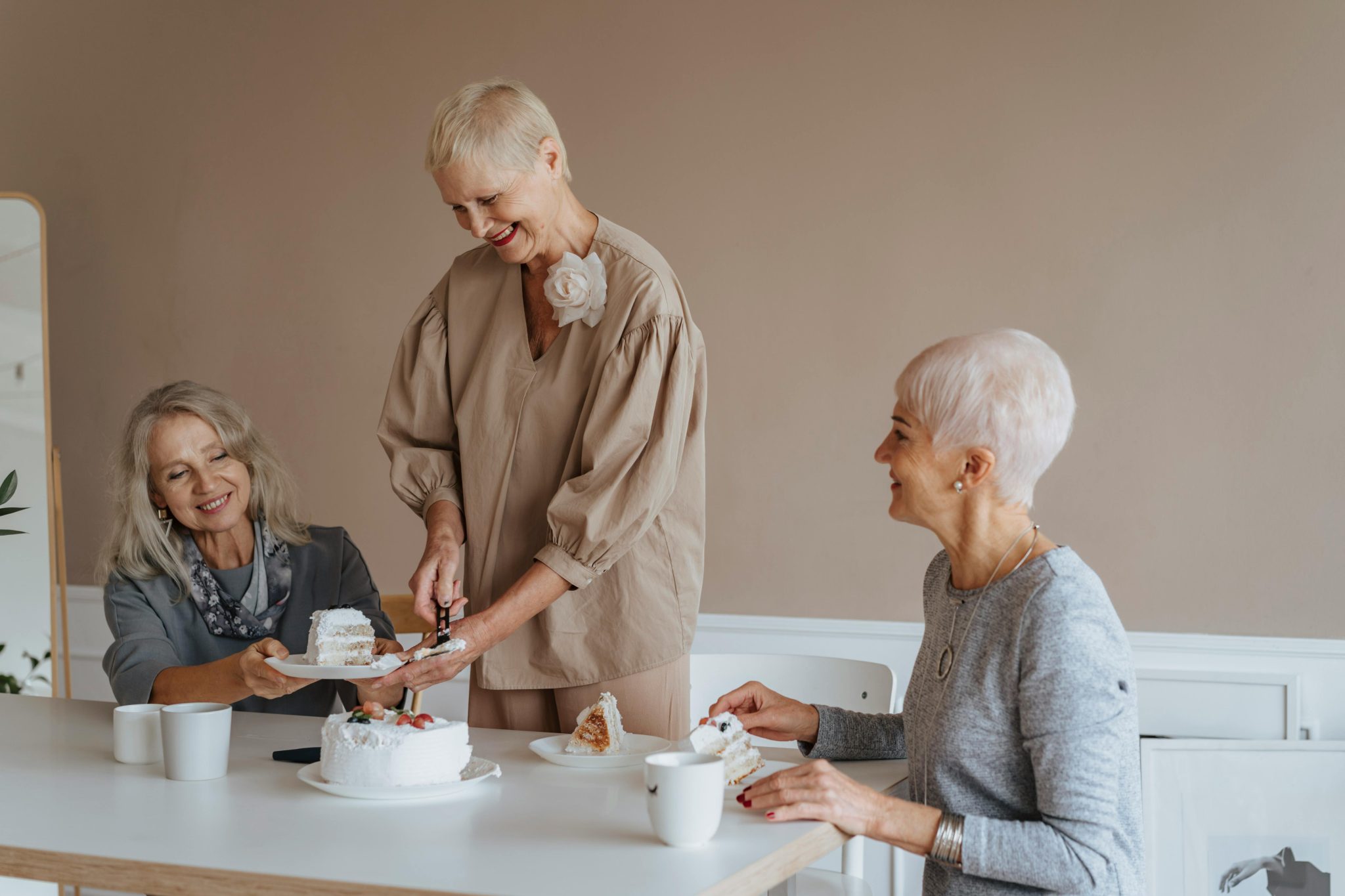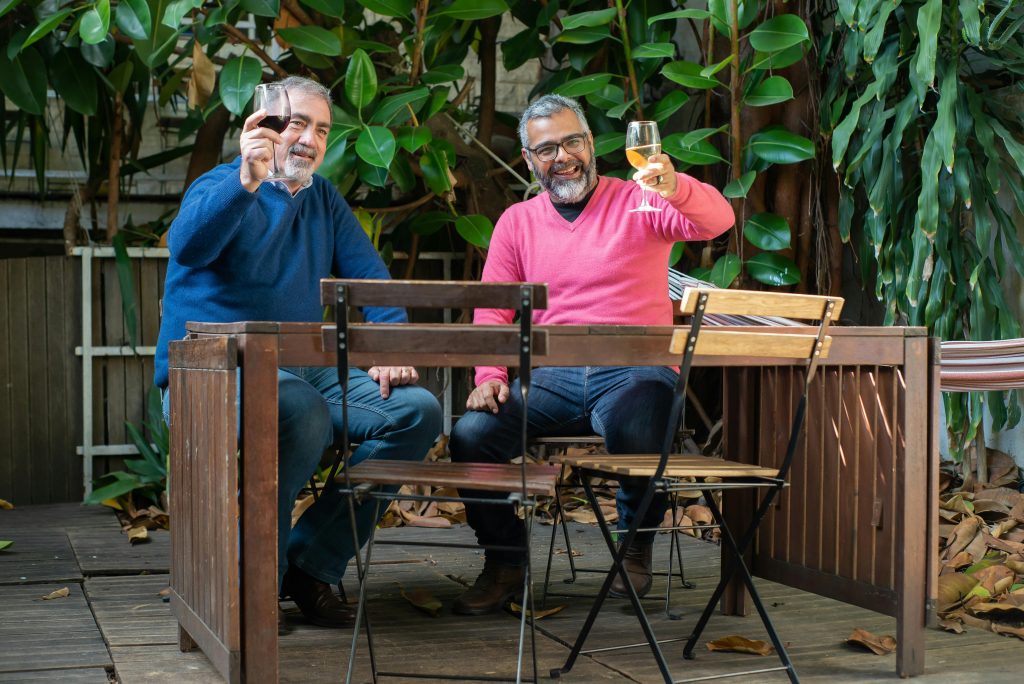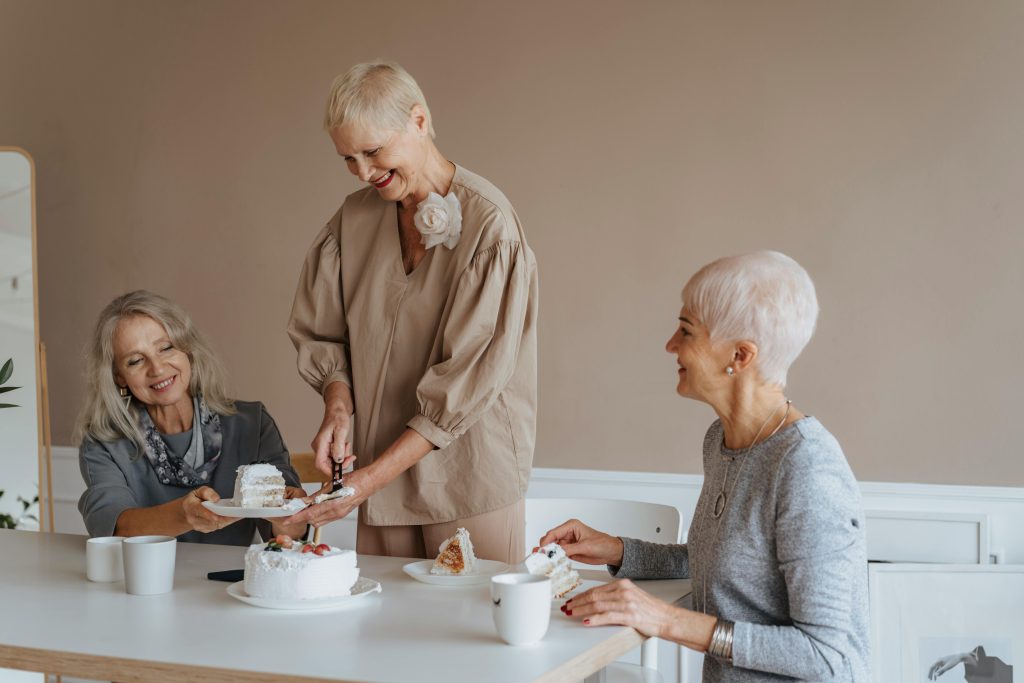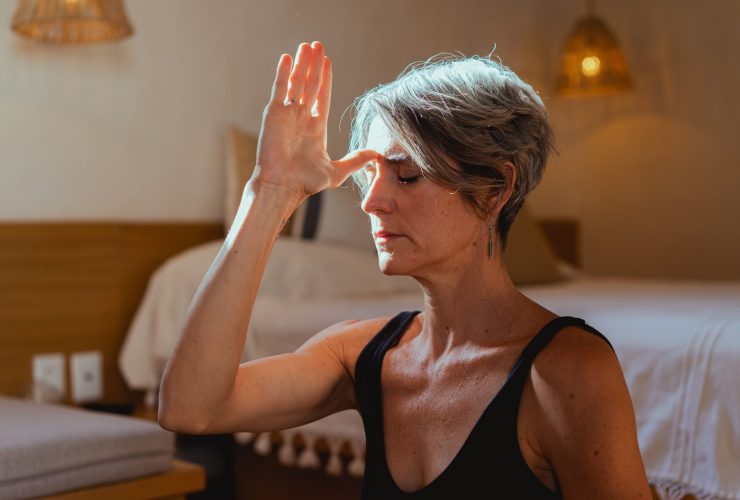The Okinawa Islands, a prefecture of 150 islands off the coast of Japan, has a unique distinction that sets it apart from the mainland. Aside from the sandy beaches and mild climate, Okinawa boasts an extraordinary feat — it has one of the highest life expectancy rates in the world. With 68 centenarians (people over the age of 100) for every 100,000 residents, Okinawa is considered one of the world’s “blue zones,” a word describing areas where populations have more prolonged life expectancy.
Many factors dictate a person’s longevity. In fact, according to The Danish Twin Study, only about 20% of those factors are related to genealogy, while a whopping 80% are related to lifestyle and environment. Thus, anyone could take lessons from these locations and incorporate them into their lifestyle to increase longevity. In this article, we will examine each of Buettner’s 9 tenants of longevity and how seniors can incorporate them into their day-to-day activities for a longer, healthier life.
Move Everyday
You’ve undoubtedly heard of numerous weight loss systems that begin and end with strenuous exercise. P90X, SoulCycle, and Pelaton have each seen their popularity grow due to people seeking hard workouts. While that might work for many, some older adults might find these strenuous systems inaccessible or unappealing. However, the secret to longevity is not doing scheduled workouts (although it can be a solid addition to any healthy routine.) Longevity can be found by incorporating movement into all aspects of life.
For example, in Sardinia, Italy, farm work is a cornerstone of their healthy lifestyle, which requires daily activities like herding, foraging, gardening, and milking. This, along with other factors, contributes to the longevity of Sardinia’s residents, but if you don’t have access to sheep or cattle, don’t worry! You can get great health benefits simply by walking. According to the National Library of Medicine, walking decreases the risk of numerous health challenges in older adults, including diabetes, dementia, and cardiovascular diseases.
Mindfulness & Stress Reduction
Stress is an unavoidable part of daily life for everyone, including older adults. According to the World Health Organization, stress is a mental reaction to challenging circumstances, and as we get older, stress begins to compound with physical and emotional changes. However, too much stress can cause physical detriment to older adults. In fact, the National Council on Aging identified that stress has a correlation to bodily inflammation and disease, causing symptoms such as headaches, digestive issues, sleep disturbances, and heart palpitations.
Ikaria, a Greek island on the Aegean Sea, has a history of being targeted by invading countries due to its geographical location. However, locals have developed a simple solution for dealing with stress—sleeping it off. Most Ikarians include a siesta as part of their daily routine, which likely contributes to their low-stress levels and, ultimately, to their longevity. The science backs it up – Business Insider recently cited a study of people aged 40 to 69 that indicated a link between daytime napping and a slower rate of brain shrinking.
Purpose
This one can be a little harder to find and even harder to quantify. There is no scientific metric for finding one’s purpose in life. In Okinawan, “purpose” is called “Ikigai”, which translates to “Why I get up in the morning.”
According to Forbes, Ikigai is a multifaceted concept that includes four elements: passion, Skills, Profession, and Social Contribution. The Ikigai lives at the intersection of these four concepts—finding what you love, what you’re skilled at, what the world needs, and what you can be paid for can combine to create purpose. However, the recipe for purpose can vary between cultures and individuals.
While the means of obtaining purpose are different on an individual level, the health benefits can make a massive impact on everyone. As Nell Derick Debevoise writes for Forbes, “People with a strong sense of purpose are more likely to engage in healthier habits, such as regular exercise and a balanced diet. These behaviors, in turn, contribute to longevity.”
A Little Wine Never Hurt
Despite what many commonly believe, moderate alcohol consumption. This is exemplified by the Sardinians, who drink wine alongside plant-heavy meals and close friends, which can contribute to stress reduction.
While excessive drinking has numerous drawbacks, studies have found that wine actually provides a number of health benefits, such as a lowered risk of cancer and heart disease. It can also help with cognitive functions – research shows that people who consume alcohol at least once a week have significantly better cognitive function than non-drinkers.
Leave Room On Your Plate
The 2,500-year-old Confucian mantra “Hara hachi bu” is often said before meals in Okinawa. This roughly translates to “Eat until you’re 80% full.” It is used as advice to tame the unhealthy habit of overeating and contributes to Okinawa’s low rates of heart disease, cancer, and stroke.
In today’s fast-paced lifestyle, many people may be guilty of eating with speed, purposefully trying to finish their meal quickly so that they can return to other tasks. However, according to the Cleveland Clinic, the human stomach takes 20 minutes to digest food. Eating slowly can give your brain time to catch up to your body, giving you a satisfied feeling without overeating.
Community
Unsurprisingly, one secret to a long, happy life is surrounding yourself with people you love.
Life can get hectic sometimes, and people can lose touch. However, making time for friends and family can be as important for one’s health as diet and exercise. Consider the Nicoya Peninsula, a blue zone located on Costa Rica’s Pacific coast. It can be described as a scenic, beachy paradise—with 900 residents over the age of 90.
There are several major factors that contribute to the Nicoyan lifespan, including reduced stress and plant-based diets. However, another factor that may contribute to this healthier lifestyle is the unique Nicoyan family dynamics: many families of multiple generations often live together under one roof. This, coupled with the sense of community created by visiting neighbors and friends, contributes strongly to the well-being of residents and ultimately creates a longer, healthier life.
Right Tribe
Returning to our starting location of Okinawa, Japan, we can learn from another Okinawan creation called “moais.” This tradition describes a circle of friends that begins in childhood and offers emotional support. Ideally, this is a group of five that supports each other throughout all aspects of life. They meet to discuss life, share advice, and even occasionally pool resources and provide financial assistance.
Societal connections such as moais can contribute significantly to a longer, happier life. Research from Harvard professor Lisa Berkman who found that “The connection between marital status, ties with friends and relatives, club membership, level of volunteerism” was directly linked to greater longevity, despite the type of connection.
Key Takeaways
There is no one-size-fits-all regimen for living longer. Many factors can contribute to lifespan, including illness, genetics, and levels of activity. However, longevity is not just about the length of life—it’s about the quality of life. Spending time with loved ones, caring for your body, and prioritizing mental health will always be the keys to promoting a happy, healthy lifestyle.
Total Life can help you create the life you want. For more information, give us a call at 800-567-LIFE. Your best life is waiting for you!









